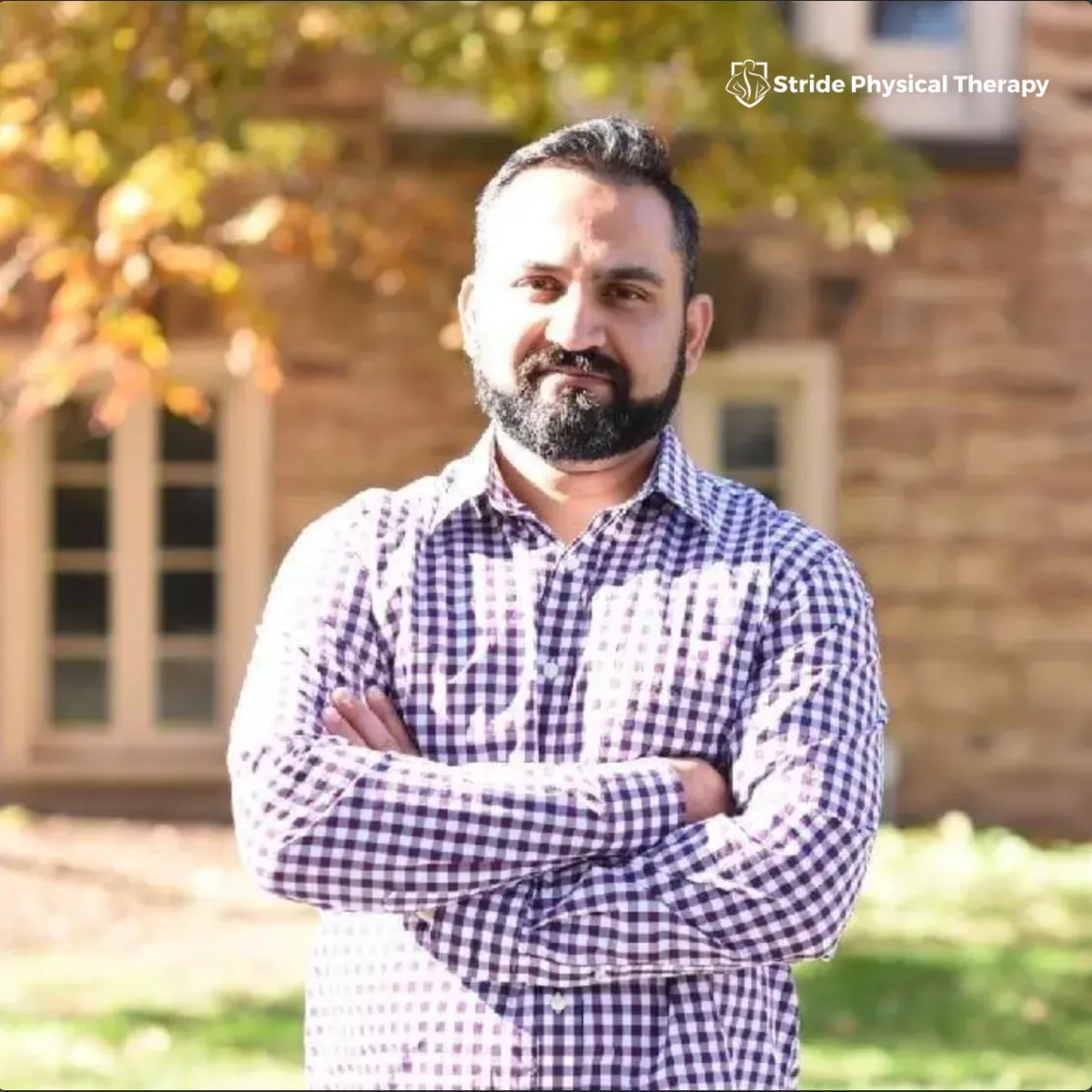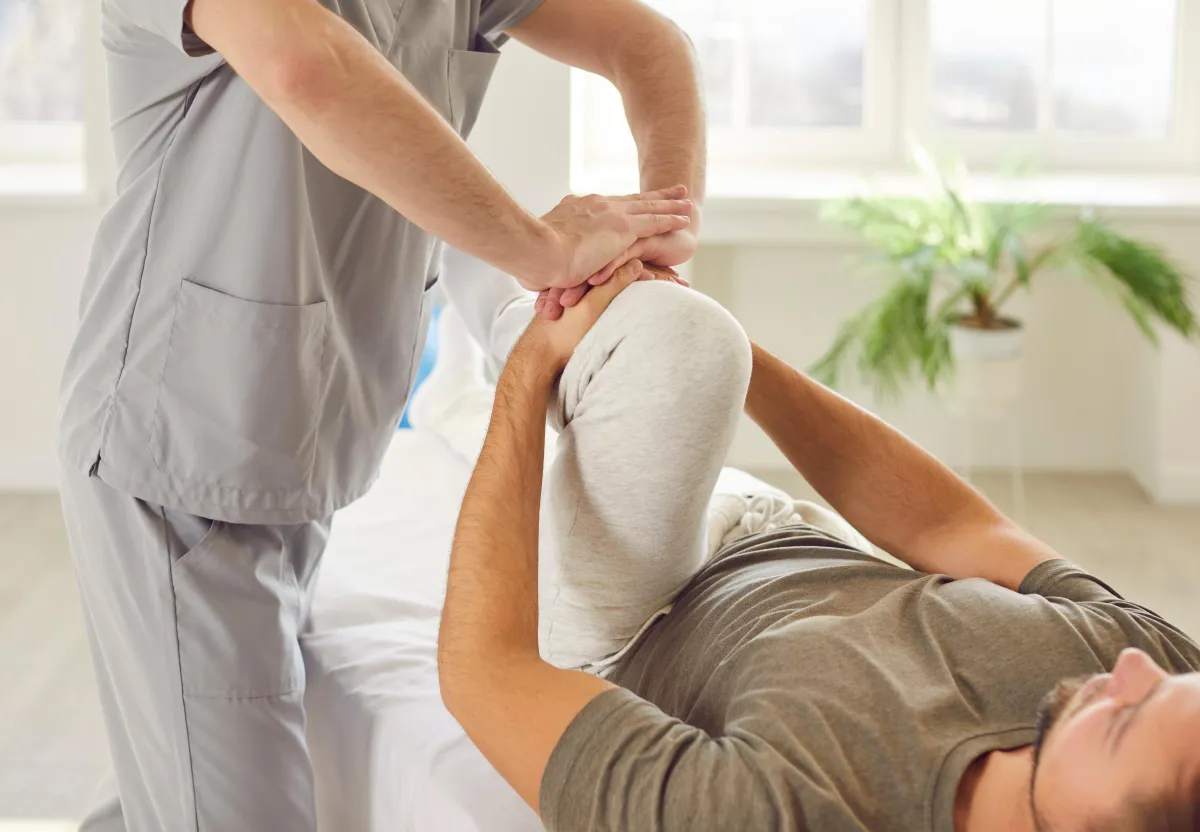Your jaw is connected to your skull by the temporomandibular joint. When this joint is harmed or injured, it can lead to TMJ dysfunction. This issue can cause your jaw and the muscles around it to become painful and stiff. Since the joint involves bones, tendons, and muscles, you might experience pain on one or both sides of your jaw, making activities like opening your mouth, speaking, yawning, and chewing quite challenging.
Struggling to chew, yawn, or hearing a click in your jaw? These could be signs of TMJ issues. Book a visit with Stride Physical Therapy for effective treatments to ease your jaw discomfort.
How can I tell if I have TMJ Dysfunction?
Diagnosing TMJ dysfunction doesn't have a one-size-fits-all solution. If you suspect you have TMJ issues, your doctor will look over your medical history and examine you. They might also refer you to a specialist like an ENT (ear, nose, and throat doctor) or a dentist who focuses on jaw problems.
Before diagnosing TMJ dysfunction, it's important to exclude conditions with similar symptoms, such as trigeminal neuralgia, salivary gland problems, or swollen lymph nodes. After confirming your diagnosis, your treatment will be tailored to your specific symptoms.

Quick Links
FAQs
If you have TMJ dysfunction, you might experience jaw pain, a popping sensation when you move your jaw, headaches, tender jaw muscles, your jaw getting stuck, temple pain, and ear pain. Common causes are teeth misalignment, constant chewing gum, arthritis, grinding teeth, or a jaw injury.
How will physical therapy help with my TMJ Dysfunction?
Home treatments like painkillers (Ibuprofen, Aspirin) and ice packs might ease TMJ pain. Sedative oils like clary sage or lavender could offer short-term comfort. If these don't help long-term, stronger options like muscle relaxers, anti-inflammatories, dental splints to stop grinding, acupuncture or even surgery may be needed.
For a natural method to treat TMJ dysfunction, consider physical therapy as a highly effective option. When you visit Stride Physical Therapy, we'll thoroughly examine your neck, shoulders, and upper back to see if they're linked to your discomfort. Our experienced Freehold, NJ physical therapists will then tailor a treatment plan to address your unique symptoms and requirements.
Our physical therapist will assess your jaw movement and ease tension in your neck and head muscles. Physical therapy aims to improve jaw function and muscle-joint coordination. Your personalized treatment may include jaw exercises, massage, joint movement techniques, myofascial release, electric therapy, or ultrasound.
Contact Stride Physical Therapy for relief:
Our caring physical therapists focus on you and your wellness, striving to alleviate your symptoms. If you're in Freehold, NJ and struggling with TMJ dysfunction, book an appointment at Stride Physical Therapy Freehold, NJ. Say goodbye to jaw pain and stiffness.
MEET YOUR RECOVERY TEAM

Kanwal Bhardwaj
PT, M.Sc.PT, CIMT, CMNT
Meet Kanwal Bhardwaj, PT, M.Sc.PT, CIMT, CMNT, the driving force behind Stride Physical Therapy in Freehold, NJ. With over 20 years of dedicated experience in the field, Kanwal brings a wealth of expertise and a passion for holistic healing to his practice. Kanwal's journey began with a Master of Science in Orthopedic Physical Therapy from Quinnipiac University in 2004. Over the years, he honed his skills and gained invaluable insights during 18 years of service in outpatient physical therapy offices. In 2014, fueled by a desire to deepen his understanding of patient care, he pursued a manual therapy certification (CIMT). This transformative experience allowed him to adopt a whole-body perspective, focusing on treating the root cause rather than just the symptoms...
At Stride Physical Therapy, we're dedicated to transforming lives. With a focus on the root cause of your condition, we're here to help you regain mobility and embrace an active lifestyle. What sets us apart? Our genuine passion for what we do. Let's stride towards a brighter tomorrow together.
Elevate Your Health with Our All-Inclusive Wellness Services!
Take one step closer to a pain-free life with Stride Physical Therapy! Discover medication and surgery-free solutions with our sessions.
Health Blog

Arthritis Pain Relief Without Medication
Arthritis pain in your knees or hips might make you want to reach for opioid painkillers. These drugs can offer short-term relief, but they're addictive and won't fix the real problem. Try a safe alternative: physical therapy. Get in touch with Stride Physical Therapy to see how a physical therapist can help ease your arthritis pain.
What is Arthritis?
Arthritis causes joint pain, tenderness, and swelling. It's a myth that it only affects old people; it can strike at any age. Treatment at Stride Physical Therapy can help get your joints moving well again and increase flexibility.
Signs of Arthritis
Arthritis symptoms can be managed with physical therapy. Common symptoms include:
Swollen Tissues: Arthritis causes tissue swelling near the affected joint, often making the area warm to the touch.
Grinding Sensation: Loss of cartilage leads to a grinding feeling as bones move against each other.
Lost Mobility: Arthritic joints can restrict your range of motion, making daily tasks difficult.
Joint Stiffness and Aches: Joints are especially stiff upon waking and may be sensitive or painful to touch.
Pain: Pain during or after physical movement is common in arthritic joints.
The Dangers of Opioids
Opioid prescriptions and overdose deaths have surged fourfold in 20 years, resulting in addiction, fatal overdoses, withdrawal, and depression. According to the CDC, opioid sales jumped 300% since 1999 with daily prescription opioid deaths over 40 in 2011. Physical therapy provides a safer option.
Physical Therapy: A Safer Alternative
If you’ve been diagnosed with arthritis, physical therapy can help you manage your symptoms without painkillers. During your first appointment at Stride Physical Therapy, you’ll discuss your medical history and symptoms. Your physical therapist will assess your strength, balance, and range of motion to create an optimal treatment plan.
Treatment Approaches
Manual Therapy: Therapeutic massage helps loosen muscles, increase range of motion, and relieve stiffness and discomfort in arthritic joints.
Body Mechanics: Learn how to perform daily activities with minimal strain on your joints to prevent the grinding sensation and slow arthritis progression.
Additional Treatments
Posture: Learn methods to optimize joint function and minimize pain, and how to use muscles and joints efficiently to relieve pressure.
Education: If needed, your therapist will teach you how to use assistive devices like canes or walkers properly.
Exercise and Weight Management: Your treatment plan may include exercises to strengthen muscles, support weight, and relieve joint strain. Aquatic exercises in a pool may be recommended for joint relief.
Contact Us Today
Physical therapy can help you manage arthritis pain without powerful opioids or other painkillers. Call Stride Physical Therapy today to schedule your first appointment with a licensed physical therapist. Start your journey to pain-free living and improved mobility.


